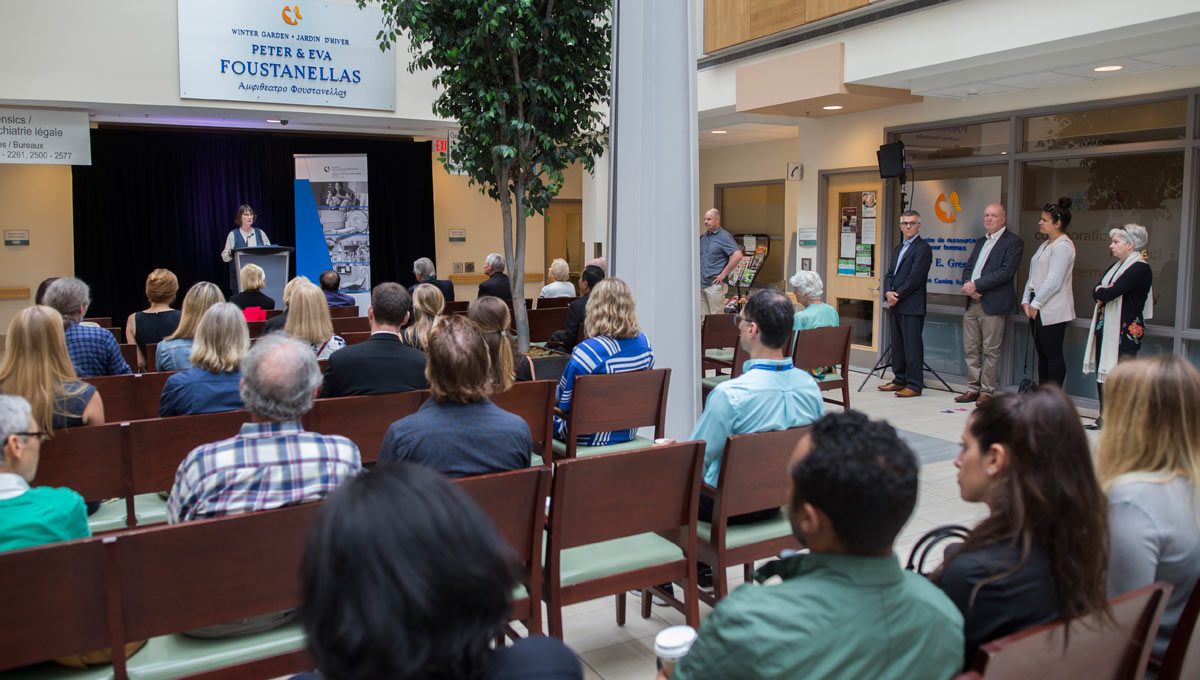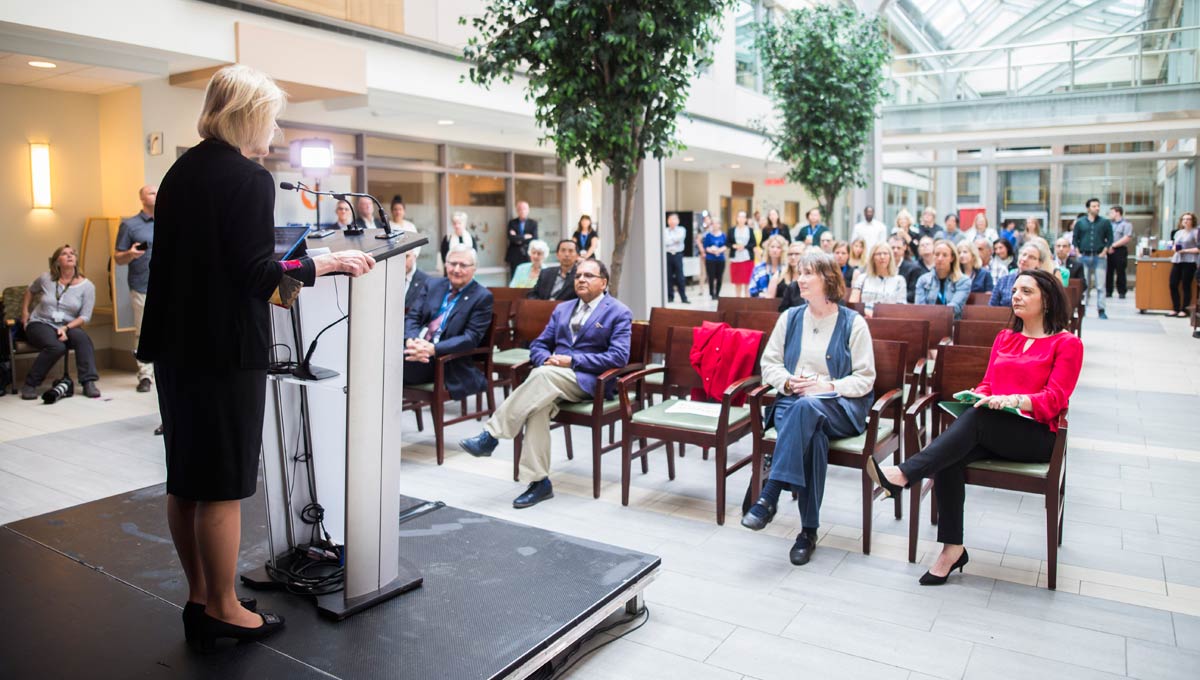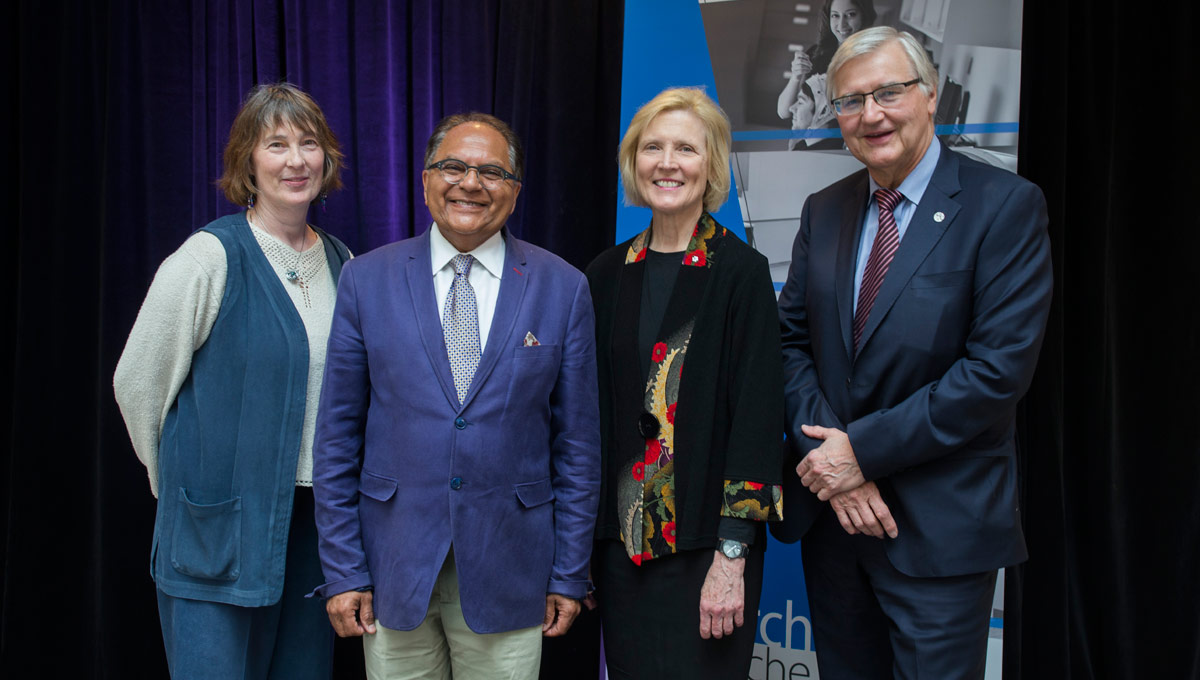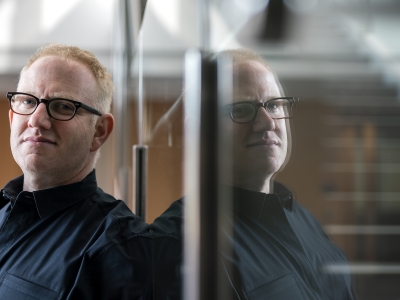By Tyrone Burke
Photos by Chris Roussakis
The Great White Bear’s feet are planted firmly on Earth as it stretches toward the heavens to connect with the Creator, but in its skyward reach, this symbol of Nishnawbe Aski Nation is vulnerable. It lifts itself up, but its heart is exposed to anyone seeking to destroy its life.
Nishnawbe Aski Nation’s youth are the hope for its future and some, like the Great White Bear, are rising. But not all are living to reach their full potential.
The group of 49 communities in northwestern Ontario is facing a suicide crisis. Nishnawbe Aski has among the highest suicide rates in the world among children under 15 years of age. In the past year alone, three communities have declared a state of emergency due to youth suicide clusters. Children as young as 10 have attempted to kill themselves.
The solution to the crisis must address the unique context from which it emerges, says Carleton University’s Kim Matheson, professor in Carleton’s Department of Neuroscience.
Recently awarded a Culture and Gender Mental Health Research Chair, Matheson is working with researchers from universities across Canada, First Nations communities and organizations in northwestern Ontario, as well as the Royal’s Institute of Mental Health Research (IMHR), to develop intervention approaches tailored to the unique experiences of First Nations.

Moving Beyond Temporary Solutions
for Indigenous Mental Health
“With each suicide crisis, the solution seems to be to send in mental health workers who can treat those at risk,” Matheson says.
“The solutions aren’t only temporary because workers leave when the crisis is supposedly over, but they don’t address the conditions from which people are deriving such feelings of hopelessness and despair that they consider suicide an option.”
Jointly held with IMHR, the new research chair is developing culturally specific approaches to help First Nations communities across Canada and policy makers who make spending decisions about health care dollars.
“Research that helps health care providers develop effective mental health interventions, especially research that incorporates cultural and gender considerations, is a major priority in this country,” says Rafik Goubran, Carleton’s Vice-President (Research and International). “Working with The Royal’s Institute of Mental Health Research will allow Carleton to use its research expertise and experience to come up with approaches to mental health that have a positive impact on challenges that people face today. Congratulations to Dr. Matheson on this new opportunity to work with the external community in this important area.”
Matheson’s research into the social determinants of health has long focused on the well-being of disadvantaged and marginalized groups who are at increased risk for stress-related disorders such as depression, anxiety and post-traumatic stress disorder.
But working with indigenous peoples presents unique challenges. The legacy of colonization means that a durable solution must come from within Nishnawbe Aski.

Youth Futures Project
Matheson has been working toward that goal with the Youth Futures project. Funded by a $2.5-million Social Sciences and Humanities Research Council grant, Youth Futures brings together western and Indigenous approaches to develop a multi-dimensional path for youth to flourish.
This can include economic development, education and community cohesion programs. All seek to build on Nishnawbe Aski’s strengths: their connection the land, the potential of their youth and a worldview rooted in family, ancestry and the intergenerational transmission of knowledge.
The research chair goes one step further than Youth Futures by working with schools, health-care providers and recreational programs to develop intervention approaches, and uses data from their implementation to evaluate effectiveness and transferability to other communities.
“Our research is about working with the communities to identify pathways that nourish these strengths to create an environment in which young people can flourish and surmount some of the challenges they’re facing,” says Matheson.
“Indigenous people have shown tenacity and resilience in the face of adversity, but they continue to face overwhelming challenges. It is the responsibility of every Canadian to work toward reconciliation, so it’s my hope that the work we’re doing in partnership with First Nations communities and organizations in northwestern Ontario contributes to the reconciliation process.
“And I think that this research chair that’s flagging the importance of culture and gender to mental health should do no less.”

Thursday, June 8, 2017 in Faculty of Science, Indigenous, Research
Share: Twitter, Facebook



